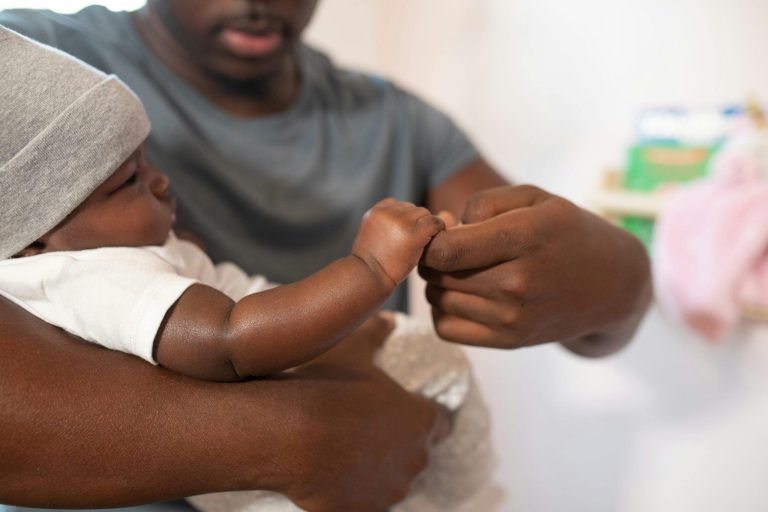Postpartum depression (PPD) is a serious mental health condition that affects parents after childbirth, characterized by persistent feelings of sadness, anxiety and emotional exhaustion.
When people think of PPD, the focus is often on mothers, but research suggests that fathers can also suffer from postnatal depression. In Kenya, where traditional gender roles place men as providers and emotional anchors, struggling with mental health after childbirth is rarely discussed. Yet, the transition into fatherhood comes with immense pressure- balancing financial responsibilities, supporting the mother and adjusting to a new lifestyle- all of which can contribute to feelings of stress and depression.
Speaking to Nairobi Post, Nairobi based Counselling Psychologist Ms Audrey Oluyole noted that rarely do people acknowledge PPD in men as many Kenyan cultures expect men to be ‘men’, making it difficult for them to admit emotional struggles after childbirth.
“Recognizing that men can also suffer from PPD is essential, not just for their well-being, but for the health of the entire family. A father’s mental state directly affects his ability to bond with his child, supporting his partner and function in daily life. While women’s PPD is often linked to hormonal shifts after childbirth, men’s postpartum depression is primarily driven by psychological, environmental and relational factors. However, research also suggests that men also undergo hormonal changes during their partner’s pregnancy and after birth, which can contribute to mood disturbances,” began Ms Oluyole.
Studies show that paternal postpartum depression affects about 10% of new fathers globally, yet many Kenyan men may go undiagnosed due to societal expectations that discourage vulnerability.
So what causes PPD in fathers?
The factors include psychological and emotional stress linked to new fatherly responsibilities and the new life changes brought about by the birth that may leave them feeling overwhelmed. Performance pressure such as being expected to be emotionally strong and financially capable also leaves them little room to be vulnerable.
“Studies show that men’s testosterone level drop after childbirth, while cortisol, which is the stress hormone, increases, leading to mood swings and emotional instability. Increased oxytocin and estrogen in new fathers support bonding with their baby, but hormonal imbalances can also contribute to depression. Additionally, there are the social and relationship struggles. So, when you’re looking at that, partner relationship changes. After childbirth, many women’s or mother’s attention shifts to the baby and some men feel emotionally neglected.
For some, it happens knowingly but for most, that emotional shifts from father to child, like me as a wife, shifting my attention from my husband to the child is just a biological thing that happens. And when this happens, men mostly feel emotionally neglected. Then the second one, lack of an emotional support system to talk about their struggles because most of the times, the support network they have, they feel that they would be deemed weak if they share,” explained Ms Oluyole.
Fathers experiencing PPD may become irritable, withdrawn or struggle with bonding with their newborns. The lack of open conversations around men’s mental health in Kenya worsens the issue, as many suffer in silence rather than seek professional help. Without intervention, this can lead to strained relationships, sleep deprivation, exhaustion, digestive issues, resentment, emotional withdrawal, poor parenting outcomes or even substance abuse as a coping mechanism.
To address this, Kenya needs to normalize discussions about paternal mental health and create support systems for struggling fathers. Hospitals and community health programs should include mental health screenings for both parents after childbirth, and workplaces should offer paternity leave policies that allow men to adjust to fatherhood without financial stress.
“Fathers experiencing PPD should seek emotional support, talk to their partners by having open communication about their struggles and how they feel. This would reduce emotional distance. They should also consider therapy or counselling to help them process emotions, manage stress and develop coping strategies. They could also join fathers’ support groups which are mostly in churches- connecting with other dads who’ve gone through similar experiences to help normalize their feelings,” added Ms Oluyole.
She also advised such dads to get involved in child care to break any disconnect they feel towards their newborns. This could range from feeding, changing diapers or soothing the baby. This would help them reduce their feelings of inadequacy.
“They should also prioritize self care, eating a healthy diet to support their emotional stability and energy levels. They should avoid unhealthy coping mechanisms such as using alcohol and drugs or mood-altering drugs. They should avoid social withdrawal because while it may seem like relief, it worsens the depression because they have to go back home,” Ms Oluyole continued.
She also listed addressing financial and work stress triggers, and find a way to diversify or negotiate these issues would also help them adjust to fatherhood as well as taking paternity leaves to rest and bond with the new family.
“Encouraging discussion about fatherhood challenges in the workplace, churches and community groups can break the stigma. So, my final thoughts is a call for greater awareness. As a therapist, I believe it’s time to change the narrative around postpartum depression in men. I’ve seen it affecting men out there who have struggled. Some even become alcoholics.
Fathers are just as vulnerable to the emotional weight of parenting as mothers, and we shouldn’t downplay it. But cultural expectations make it harder for them to acknowledge or seek help for their struggles. When fathers suffer in silence, it affects not just their mental health, but also their relationships, parenting involvement, and family dynamic. Postpartum depression is not a sign of weakness. It’s a mental health condition that deserves attention, treatment and open conversations,” concluded Ms Oluyole.

